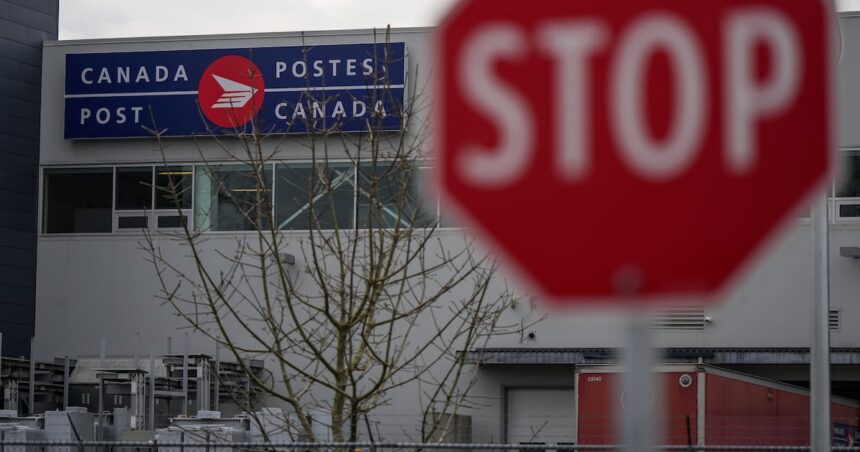Mail delivery across Canada faces potential disruption as the Canadian Union of Postal Workers (CUPW) directed its 55,000 members to refuse overtime starting today, following unsuccessful contract negotiations with Canada Post. The overtime ban comes after the parties failed to reach an agreement before the midnight deadline on Thursday, marking a significant escalation in the ongoing labor dispute.
“We’ve been negotiating in good faith for months, but management continues to ignore our core concerns about workload, safety, and fair compensation,” said Julianne Richards, CUPW National President, in a statement released this morning. “Our members are already stretched beyond capacity, and mandatory overtime has become the norm rather than the exception.”
The union’s move stops short of a full strike but represents a strategic pressure tactic that could substantially impact mail delivery times, particularly in urban centers where letter carriers routinely work beyond their scheduled shifts to complete routes. According to internal CUPW data, postal workers collectively performed over 3.2 million hours of overtime last year, equivalent to nearly 1,800 full-time positions.
Canada Post spokesperson Martin Desmarais expressed disappointment over the development, stating that the corporation had presented a “competitive offer” that included wage increases and workplace improvements. “We remain committed to reaching a negotiated settlement that serves the interests of our employees, customers, and all Canadians who depend on our services,” Desmarais said in a Canada News conference.
The dispute centers on several key issues, including wage increases that keep pace with inflation, addressing chronically understaffed facilities, and modernizing outdated equipment that has contributed to workplace injuries. Union representatives cite a 28% increase in reported injuries since 2020, primarily related to repetitive strain and lifting injuries.
Business groups across the country have voiced concerns about the potential impact on operations. The Canadian Federation of Independent Business estimates that even minor delays could cost small businesses approximately $250 million weekly in delayed payments and interrupted supply chains. Larger CO24 Business operations have already begun shifting to alternative delivery services.
Federal Labour Minister Sandra Collins has appointed special mediator Robert Sinclair to facilitate discussions between the parties. “The government recognizes the essential nature of postal services to Canadians and businesses,” Collins stated. “We urge both parties to continue negotiations and find common ground that ensures the sustainability of services while addressing workers’ legitimate concerns.”
This labor action comes at a particularly challenging time for Canada Post, which reported a $345 million operating loss in 2024 as it continues to grapple with declining letter mail volumes and increased competition in the parcel delivery sector. The Crown corporation has been implementing a modernization strategy aimed at pivoting toward digital services and enhancing parcel delivery infrastructure.
For Canadian consumers, the immediate effect may be minimal, but experts warn that continued job action could lead to noticeable delays within days. “Priority items and prescription medications will still be processed, but standard mail and parcels will likely face delays of three to five business days initially, potentially increasing if the dispute continues,” explained Dr. Kenneth Wong, professor of business strategy at Queen’s University.
As both sides return to the bargaining table today, the question remains: can Canada’s postal system find a sustainable path forward that balances the needs of workers with the economic realities of a changing communication landscape, or are we witnessing the beginning of a prolonged dispute that could fundamentally reshape postal services across the country?

























